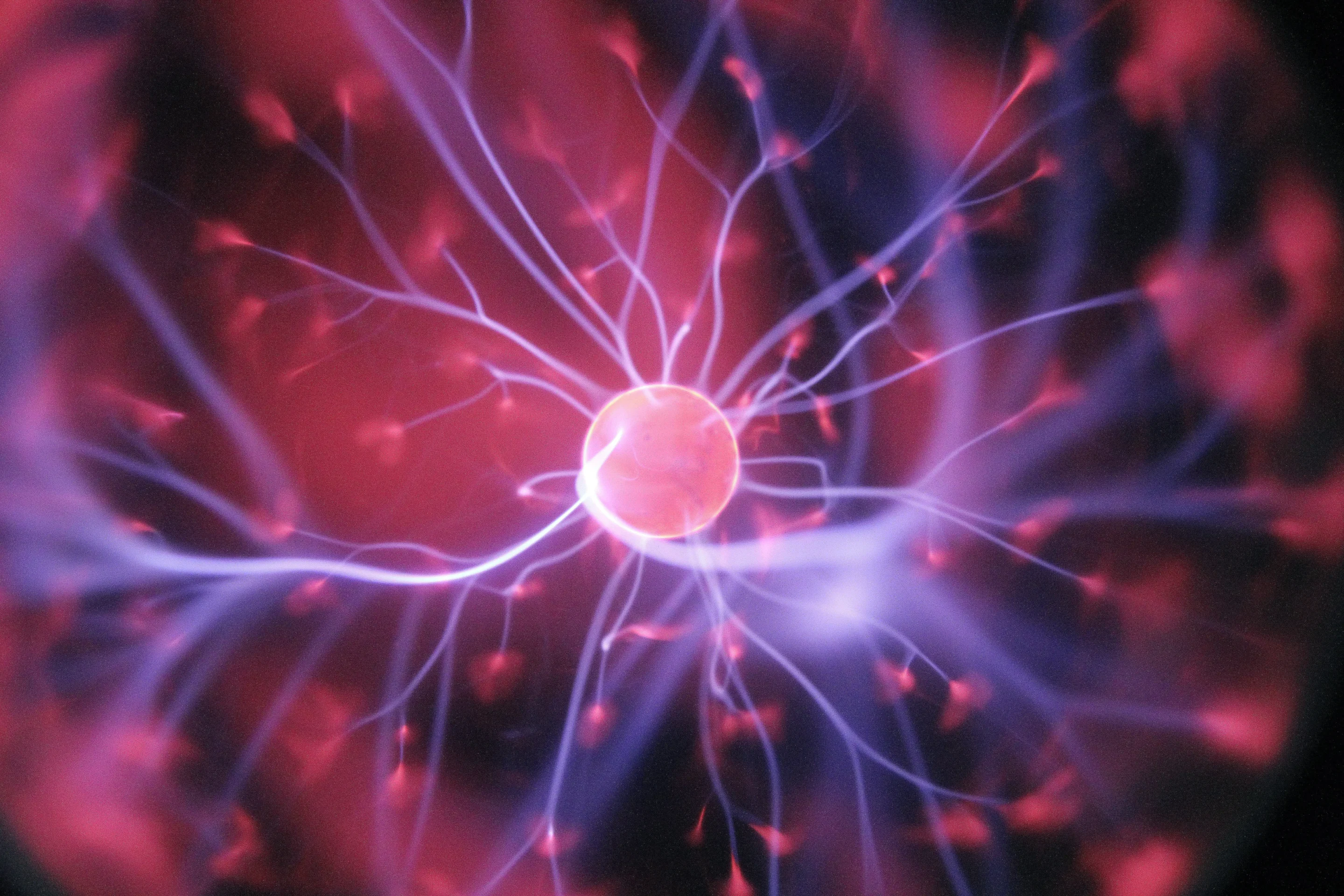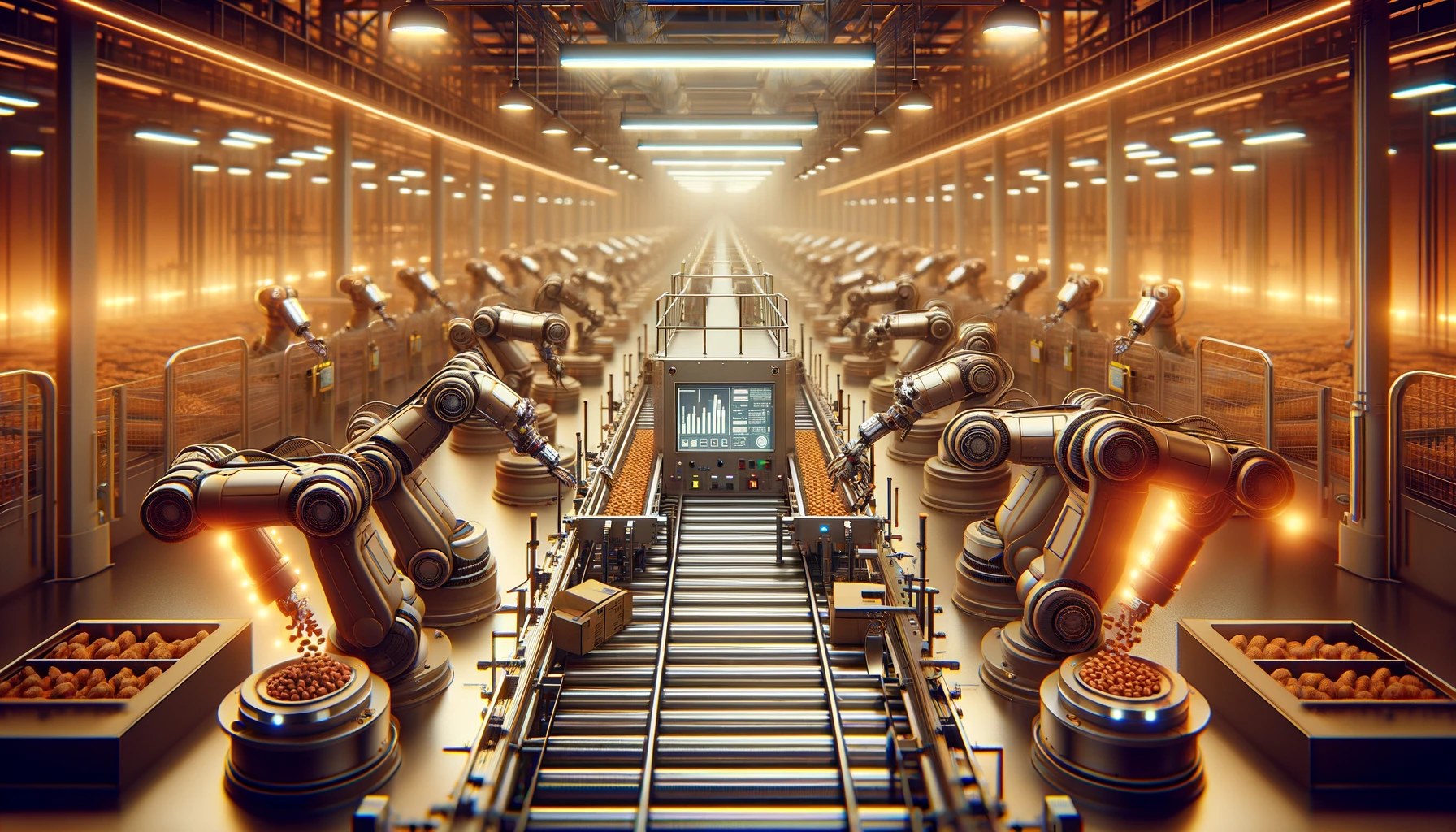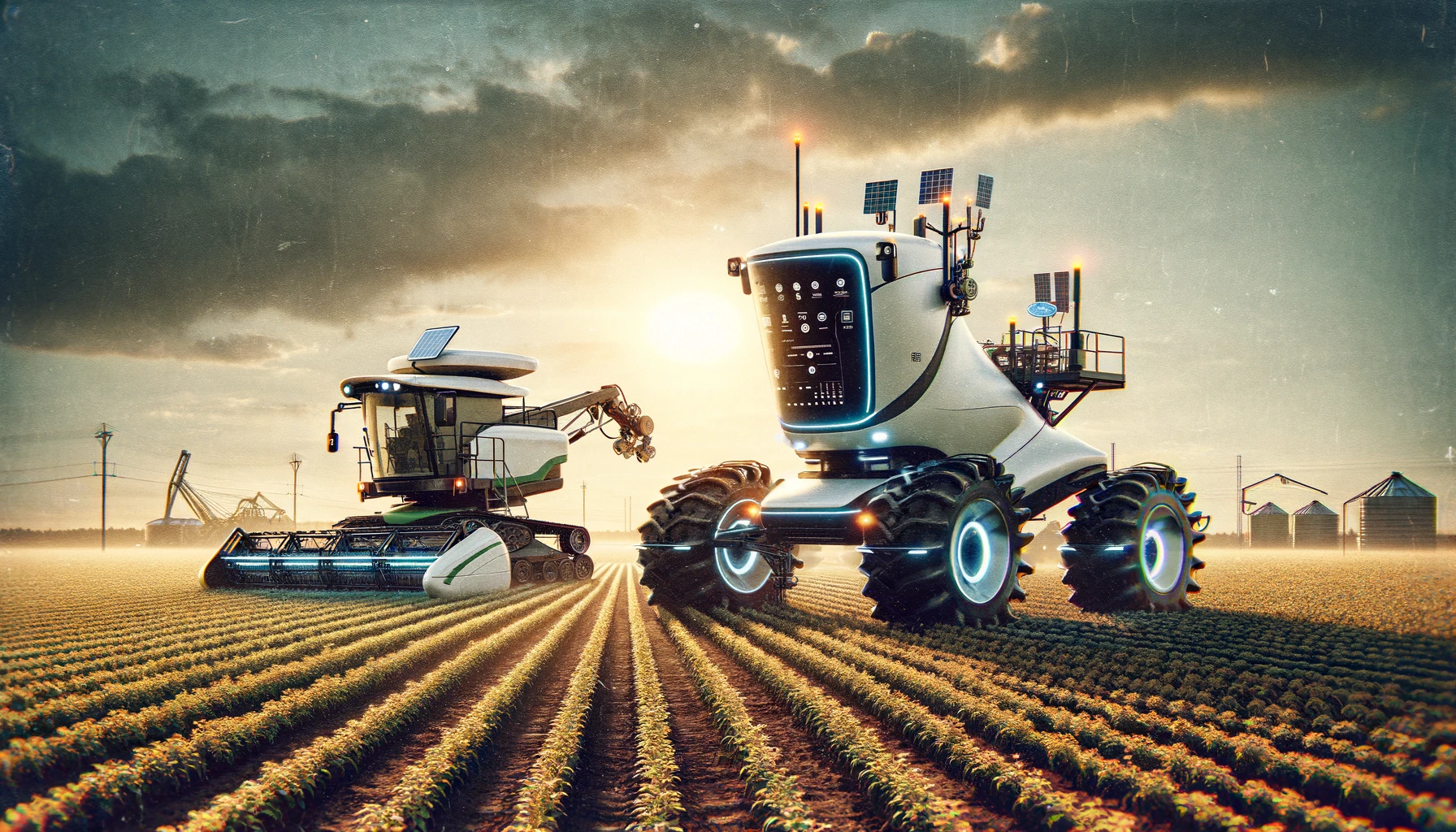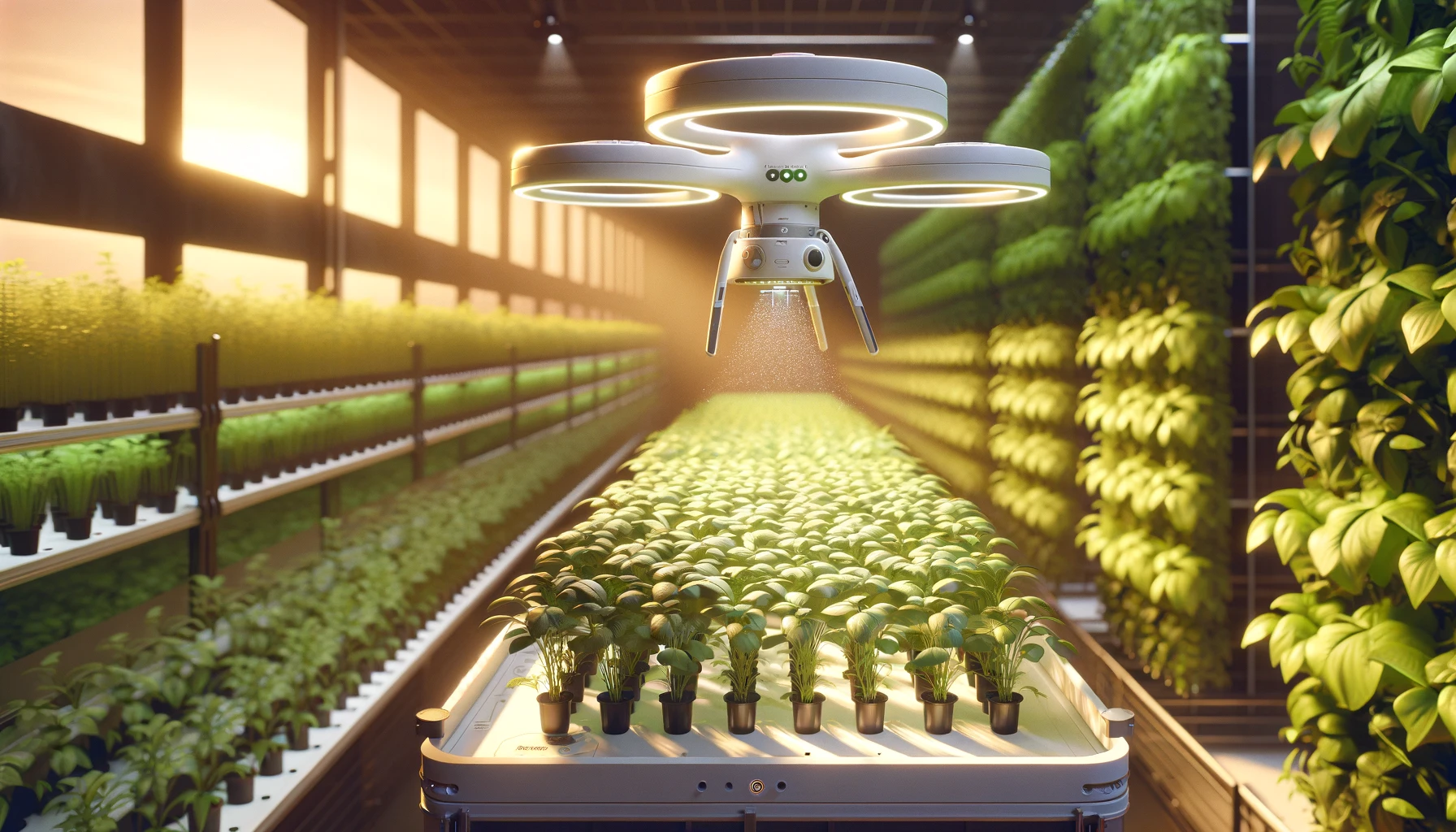Introduction to AI in the food industry: from theory to practice
Welcome to our comprehensive introduction to AI in the food industry. We explore how it began as a theoretical idea and evolved into a revolutionary force. Initially, we delve into the significance of AI in the development of agricultural technology before transitioning to its role in creating personalized food experiences for consumers. Moreover, we will examine AI’s impact on food production and distribution. Each section highlights the powerful influence of AI, demonstrating that AI is not just a part of the future – it actively shapes our current food industry.

Historical Background of AI
Artificial Intelligence, once an ambitious vision among scientists and visionaries, has recently undergone a fascinating development. From the theories of the 1950s to today’s advanced algorithms, AI reflects human ambition and technological advancement.
The history of AI began in the mid-20th century, with groundbreaking events such as Alan Turing’s work on “thinking machines” and the development of the first programmable computer. Consequently, these early advancements laid the foundation for the modern AI we see today, which combines advanced computer science with insights from psychology, neuroscience, and linguistics.
AI and the Food Industry: A Natural Collaboration
The global food industry is currently undergoing a significant transformation thanks to AI. Furthermore AI’s role is rapidly expanding, with projected growth from SEK 31 to 315 billion by 2028, enhancing product development and optimizing supply chains. Companies can also manage detailed data across the entire supply chain through efficient AI usage. AI also contributes to improved transparency and traceability, reduces contamination risks, and optimizes the transport of temperature-sensitive products.
For example, AI-driven predictive analytics contribute to minimizing food waste and optimizing inventory, saving costs and protecting the environment. AI further enhances customer experiences by providing tailored recommendations based on customer data and preferences, thereby enhancing customer satisfaction and loyalty. Moreover, AI plays a crucial role in quality control and food safety standards by tracking inventory and identifying products nearing their expiration date.

“AI-driven technologies in the food industry, smart systems for food production”
Created with DALL·E.
Global Challenges and AI’s Role in Food Systems
As population increases and climate changes intensify pressure on the world’s food resources, AI emerges as a solution to meet these global challenges. First and foremost, AI increases efficiency in food production and distribution, a critical step in developing sustainable food systems. AI also reduces waste and environmental impact AI also reduces waste and environmental impact Furthermore, the technology enables intelligent management of food resources, resulting in more sustainable and resilient systems, ready for future needs. AI also optimizes predictions about harvest yields and resource usage,
thereby contributing to better decision-making in agriculture. AI supports the fight against food waste by more accurately predicting demand, thus reducing overproduction and resource wastage. In summary, AI’s role in the food industry is multifaceted and growing, offering solutions to current and future challenges.
For further insights into how digitalization and sustainability affect the future of the Swedish food industry, read our analysis here.
AI’s Role in Future Agriculture: Sustainability and Precision
Precision technology enables farmers to monitor and manage their crops more efficiently. AI-based systems can analyze data from satellites and drones to predict weather patterns, optimize irrigation, and combat diseases. The technology leads to sustainable, resilient food systems that meet future needs.
In addition to agriculture, AI plays a significant role in other areas of food production, such as aquaculture. AI technologies are used for monitoring and predicting fish health, contributing to more sustainable and efficient farming systems. Read more about how AI is transforming the aquaculture sector here.
Progress through AI: Transforming Food Production with Smart Technology
In food production, AI optimizes manufacturing processes, starting with automating sorting and packaging. AI’s role extends to improving quality control through advanced analysis methods. Additionally, by integrating AI with IoT, production facilities’ ability to anticipate maintenance needs increases, reducing the risk of unexpected disruptions and improving the overall production flow. Consequently, this results in higher efficiency and less waste. AI technology also tailors production to current demand, leading to more accurate and resource-efficient manufacturing. Finally, AI contributes to creating a more flexible and responsive production environment, crucial in a rapidly changing market.
AI-driven Supply Chains: The Future of Distribution in the Food Sector
AI transforms how food is transported and distributed. First and foremost, by analyzing data on consumption patterns and transport conditions, AI can optimize routes and inventory management, leading not only to cost savings but also to reduced environmental impact through more efficient transport solutions.
Moreover, AI improves delivery precision, reducing the risk of delays and errors, resulting in higher customer satisfaction and more efficient resource management. AI technology also facilitates demand forecasting, helping companies anticipate future trends. Consequently, businesses can more accurately adjust their production and distribution plans. Finally, AI contributes to increased transparency in supply chains, giving consumers and companies better insight into the origins and handling of goods. Altogether, AI plays a crucial role in creating more sustainable, efficient, and customer-centered supply chains in the food sector.

“Futuristic agricultural machinery illustrating the use of AI in the food industry”
Created with DALL-E.
AI in Retail:
Consumer Engagement and Marketing
Specifically within retail, AI can revolutionize the customer experience. AI analysis of purchasing behaviors enables personally tailored recommendations for engaging customer experiences. Through machine learning, companies can gain insights that improve both inventory management and pricing, leading to more efficient and customer-centric operations. This use of AI helps food companies not only optimize their internal processes but also build stronger relationships with their customers by providing a more personalized and satisfying shopping experience.
A study by Salesforce shows that 93% of British retailers are investing more than ever in AI-driven experiences. To succeed in this, it is important to handle ethics, data privacy, and data security, as trust is a fundamental aspect of the customer relationship.

Integration of AI into Existing Systems and Processes
Furthermore, integrating AI into existing systems and processes is a complex and time-consuming task, often requiring investments in new infrastructure or adaptation of existing systems. The challenge is that the available standard AI solutions are not sufficiently customized for each company’s unique needs. An example of a standard AI solution is an automated customer service system that uses a chatbot to answer common customer questions. These systems are often pre-programmed with a set of standardized responses and are designed to handle common inquiries without human intervention. They are useful for many companies but may not be specific or adaptable enough to meet the unique needs of a specific company or industry, such as the food industry.
Companies can overcome these obstacles by training staff and hiring AI specialists. Collaboration with AI solution manufacturers is also crucial for successful integration. An example of a company that has successfully integrated AI is Munich Re, which, through continuous learning and internal competence development, could adapt AI solutions to its specific needs. Another example is our project Speed Seed with Lantmännen, where we used a machine learning model to predict the optimal treatment method for seeds before sowing. The solution was then seamlessly integrated into Lantmännen’s existing IT architecture.
AI: Future Visions and Engagement
At Elvenite, our vision of using AI in the food industry encompasses more than just technical improvements. It means actively supporting, inspiring, and educating our clients and the food industry in their AI journeys. We aim to be at the forefront of innovation, not just optimizing existing processes but also exploring and introducing new methods for food production, distribution, and consumption. Our focus is on driving research and development to help our clients navigate and benefit from AI’s opportunities, contributing to a more efficient and future-proof food industry.
Artificial intelligence is more than a trend; it is a fundamental shift in how we produce, distribute, and consume food. In summary, this is a journey that Elvenite is proud to be a part of, and we look forward to exploring this new world together with our partners and clients.
Welcome to the future of the food industry, driven by AI.
News. Insights. Thoughts.
Elvenite ranked as one of the best places to work in the IT industry in 2024
Elvenite ranked as one of the IT industry's Best Workplaces 2024 Elvenite has been named one of Sweden's Best IT Workplaces for 2024, a prestigious award from Great Place To Work®. Elvenite is ranked 15th out of 25, celebrating our outstanding workplace culture and...
When milk production flows steadily, year-round
Ensuring steady milk production all year round with AIDid you know that milk production fluctuates significantly throughout the year? While we, as consumers, buy milk at the same pace regardless of the season, dairies like Valio face major challenges. During the...
How we use word embeddings and AI: from seating arrangements to data analysis
How we use word embeddings and AI: from seating arrangements to data analysisCreating the perfect seating arrangement is a challenge we can all relate to, whether it’s a private party or a large corporate event. Should I seat Anna next to Henrik, or will she be...



